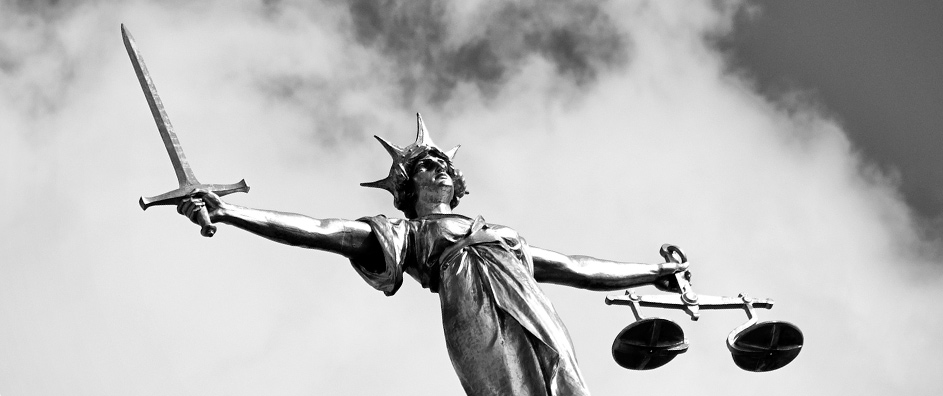The Bahá’í teachings illuminate the profound concept of justice, particularly the notion of “Merciful Justice: In Search of the Sword that Mends.” This principle offers a layered understanding of justice, aiming not only to punish but also to heal. This duality encapsulates an essential differentiation within justice, emphasizing the need for mercy in a world riddled with conflict and division.
Justice, in the conventional sense, often conjures images of retribution. Societal norms frequently define justice as an instrument wielded to punish transgressions and maintain order. However, Bahá’í teachings propose a paradigm shift. They advocate for a form of justice that interlaces mercy, suggesting that true justice does not merely rectify wrongs but fosters a restorative process to heal societal rifts.
One might ponder why this notion of merciful justice is crucial. The polarization of societies, evident across the globe, necessitates an exploration into the factors that deepen animosities. Discontent often arises when justice appears to be biased, rigid, or punitive. The Bahá’í approach encourages individuals and communities to reimagine justice as a dynamic construct, capable of evolving with societal needs. By embracing the concept of merciful justice, there is hope for reconciliation and unity in fractured communities.
At the heart of this teaching lies the recognition that every individual is intrinsically valuable. This perspective fosters a more compassionate and understanding approach to conflict resolution. Rather than viewing justice as a zero-sum game, Bahá’í principles advocate for inclusive dialogue and community-oriented solutions. When individuals feel heard and valued, the likelihood of contrition and reconciliation increases significantly.
The metaphorical ‘sword that mends’ epitomizes this approach. A sword traditionally evokes images of battle, conflict, and division. Yet, when interpreted through the lens of merciful justice, it signifies an instrument that can be wielded to cultivate healing. This transformative view encourages stakeholders in various conflicts to seek resolution not through force, but through dialogue and understanding. The challenge remains: how does one cultivate a mindset conducive to this form of justice?
Engagement in community dialogues is paramount. By creating safe spaces where individuals can express their grievances, a foundation of trust is established. These spaces serve as crucibles, allowing diverse voices to converge. Here, the focus shifts from individual grievances to collective healing. Facilitators trained in conflict resolution are essential in guiding such discussions. They can aid in navigating the complexities inherent in interpersonal and communal conflicts, ensuring that all participants feel validated.
Additionally, education plays a crucial role in advancing the principles of merciful justice. Incorporation of these ideals into educational curricula can reshape the next generation’s understanding of conflict and resolution. Teaching children about empathy, understanding, and the importance of mercy not only nurtures individuals but also fortifies communities. This proactive approach serves to dismantle longstanding prejudices and fosters a culture of understanding.
The integration of forgiveness is another vital component of merciful justice. Forgiveness does not imply absolution from accountability; rather, it facilitates the release of burdens that individuals carry from past conflicts. Viewing forgiveness as an active choice, rather than a passive concession, can engender a powerful transformation. The act of forgiving becomes a personal act of liberation, allowing individuals to reclaim their narratives and emerge empowered.
The invocation of universal principles, such as equity and fairness, is essential in implementing merciful justice. These principles can transcend individual experiences and contextualize conflicts within broader societal frameworks. An equitable approach to justice fosters an environment where marginalized voices are amplified, and systemic injustices are interrogated. Through this, the underlying constituents of societal fractures can be addressed, thus paving the way for enduring resolutions.
Moreover, the role of the individual in crafting a merciful approach to justice cannot be understated. Personal introspection and awareness are necessary components for any substantial change. By reflecting on personal biases and understanding the impact of one’s actions on others, individuals can actively contribute to a culture of mercy and understanding. This commitment to self-awareness becomes pivotal in dismantling entrenched societal narratives that fuel injustice.
In conclusion, the Bahá’í perspective on justice transcends traditional notions of retribution, advocating for a merciful approach that recognizes the intrinsic worth of every individual. The ‘sword that mends’ serves as a metaphor for healing and reconciliation, urging communities to engage in dialogue and mutual understanding. With a focus on education, forgiveness, equity, and personal accountability, the teachings offer a comprehensive framework for enacting a form of justice that heals rather than harms. As global societies grapple with increasing polarization, embracing the tenets of merciful justice may be an indispensable step toward creating a more harmonious world.
